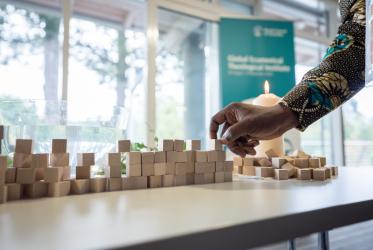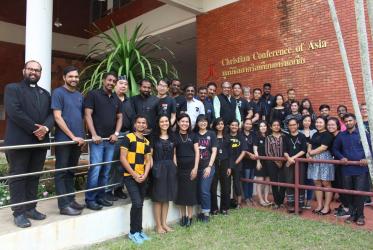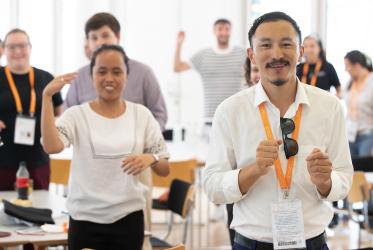Displaying 1 - 20 of 78
Compendium of Promising Practices of African Faith Community Interventions against Paediatric and Adolescent HIV
Executive Summary
23 March 2024
WCC institute encouraged rethinking theology
23 November 2023
WCC Eco-School begins in Crete
15 November 2023
Regional theological institute will gather young people from Africa
02 November 2023
Recommended Practices to Combat HIV-Related Stigma
A Guidebook for Local Faith Communities
05 October 2023
Faith Sector Implementation of the Global AIDS Strategy
05 October 2023
HIV and AIDS Civil Society Networks and the Faith Sector
Lessons Learnt from Strategic Engagement in India, Dominican Republic, Indonesia, and Jamaica
31 January 2023
Christ’s Love (Re)moves Borders – GETI 2022 in images
13 September 2022
Reflections from GETI underscore friendship coupled with knowledge
13 September 2022
Aspiring therapist opens his mind to different beliefs
13 September 2022


















